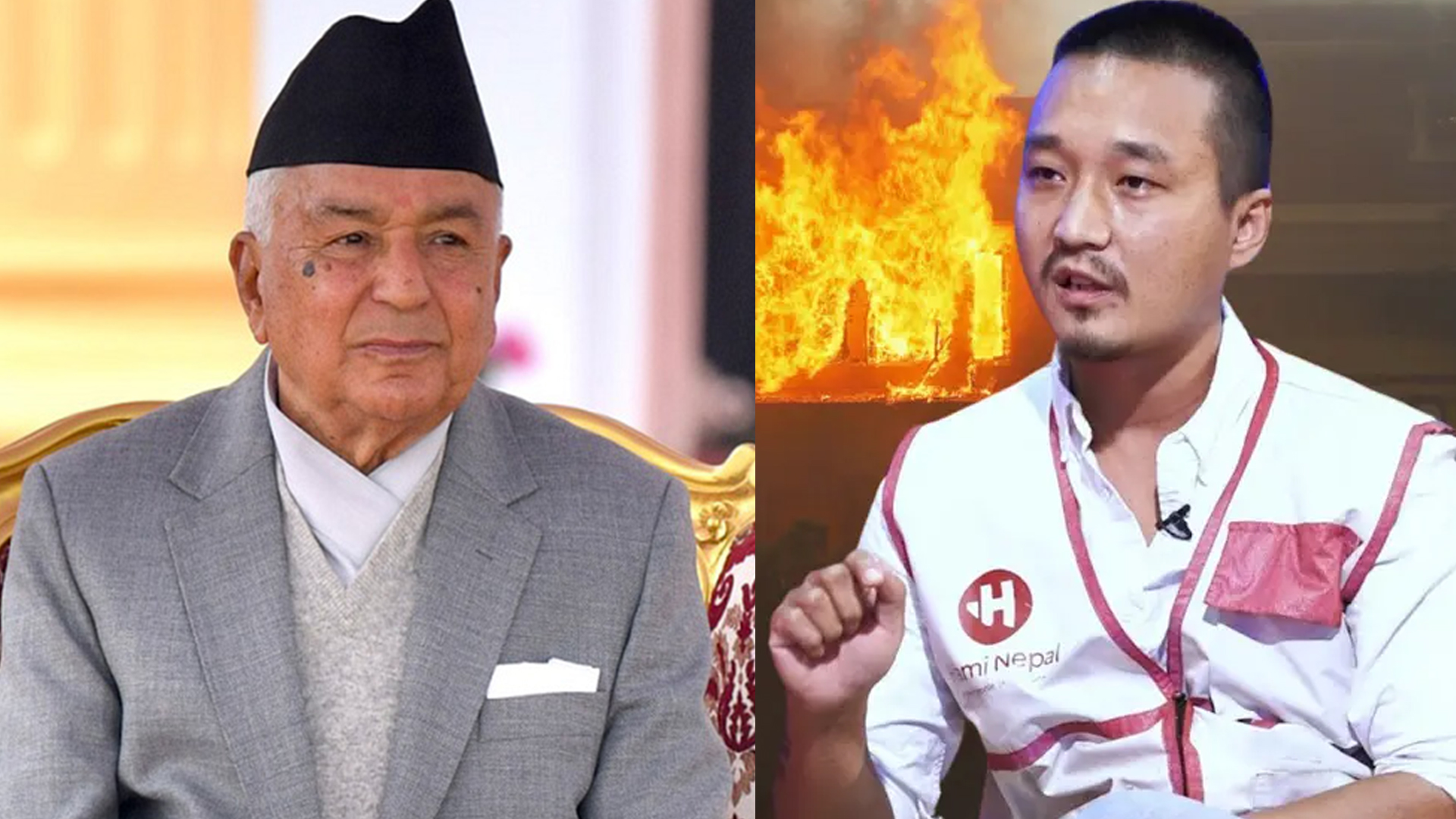Millennial Activist Threatens to ‘Spit and Beat’ Nepal’s President in Viral Video

Nepal’s fragile political climate was jolted overnight after a shocking video surfaced of Sudan Gurung, a 36-year-old social activist, threatening to physically assault President Ram Chandra Paudel. Gurung, the president of the NGO Hami Nepal, can be heard declaring: “If former Chief Justice Sushila Karki is not appointed Prime Minister by 11 p.m., I will spit on and beat President Paudel.” The midnight clip went viral on social media, igniting fierce debate about rule of law, democratic values, and the culture of protest in the Himalayan nation.
Gurung’s threat is particularly unsettling because of his track record. Once known as an event manager immersed in Kathmandu’s nightlife, his life changed dramatically after Nepal’s 2015 earthquake, when he lost his child in the rubble. “A child died in my arms. I’ll never forget that moment,” he said at the time. That tragedy propelled him into activism, leading him to found Hami Nepal, which has since mobilized more than 1,600 members for earthquake, flood, and landslide relief efforts.
Yet the philanthropist-turned-protester’s aggressive warning against the head of state has raised alarm. Legal experts condemned it as a criminal act. A former president of the Nepal Bar Association stated bluntly: “To threaten the country’s highest office is a direct attack on democratic culture. Without enforcement of the law, this behavior will only spread.”
The episode has also exposed a generational fracture within Nepal’s ongoing youth protests. Generation Z (ages 13–28, born 1997–2012) has been leading demonstrations in the streets, but now Millennials (ages 29–44, born 1981–1996)—like Gurung himself—are entering the fray with increasingly aggressive rhetoric. Older cohorts—Baby Boomers (ages 61–79, born 1946–1964) and Generation X (ages 45–60, born 1965–1980)—have voiced fears that such threats signal growing anarchy rather than constructive change.
The presidential office has yet to issue an official response, but Nepal Police confirmed they are reviewing the viral footage. “Threats made on social media are a serious matter. Preparations for investigation are underway,” said a senior police official. Civil society groups, however, warned that security crackdowns alone will not suffice and urged political leaders to address the deeper frustrations fueling youth anger.
Meanwhile, Gurung’s supporters defend his outburst as a cry of desperation. Online comments argue that the language, however extreme, reflects the sense of injustice many young Nepalis feel. “When justice is denied and no one listens, the youth are forced to speak in extreme terms,” one supporter wrote.
The threat against President Paudel has become a symbol of Nepal’s turbulent intersection of law, politics, and society. When anger grows so intense that even the presidency is targeted with violent language, it underscores how fragile the country’s democratic stability remains—and how much deeper the coming challenges may run.
Gen-Z



![From Kathmandu to the World: How Excel Students Are Winning Big [Admission Open]](https://nepalaaja.com/index.php/img/70194/medium/excel-college-info-eng-nep-2342.jpg)
